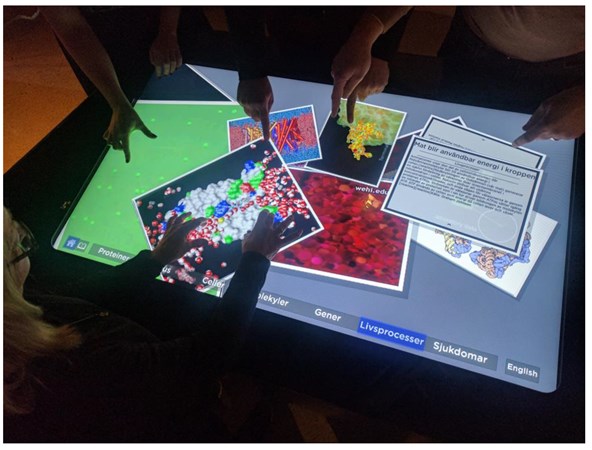The digital revolution has opened new ways for communication of knowledge and information. This project focuses on interactive touch tables as learning tools at a science center. We are interested in how and why a digital installation attracts visitors’ attention, how the user interacts with visualization and how they understand the content, as well as what they learn through the interaction.
The project is conducted at the Norrköping visualization center C. In the project we study a touch table exhibit that lets visitors explore images and videos depicting objects that are too small to be visible to the naked eye. We have also developed the exhibit content as part of the project.
The user interface of an interactive touch table must be intuitive. In addition, it needs to be complemented with instructions and tasks, or personal guiding, specifically adapted to the content and target audience. However, their effect on learning is largely unexplored. There are multiple questions that we seek answers to, such as:
- How are touch table exhibits best designed for their purpose?
- What topics and themes are best suited to communicative opportunities offered?
- How do they affect visitors' learning of science and technology?
Granted by: Norrköpingsfonden för forskning och utveckling
We have logged users' finger positions while they interact with the visualization. The image shows the recorded finger positions during one session which lasted approximately 6 minutes.




